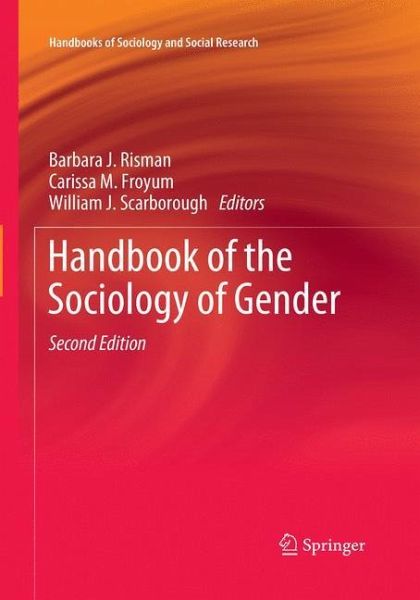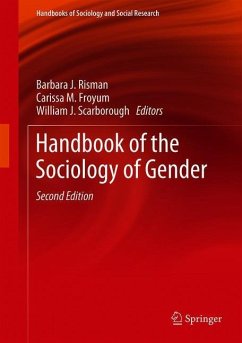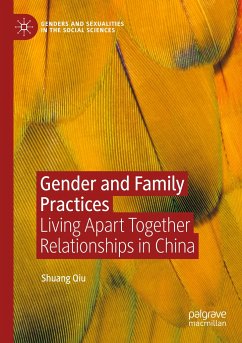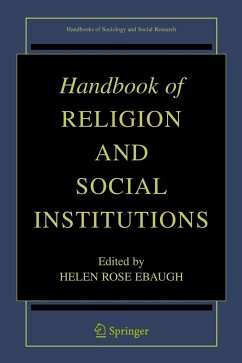
Handbook of the Sociology of Gender
Versandkostenfrei!
Versandfertig in 6-10 Tagen
167,99 €
inkl. MwSt.

PAYBACK Punkte
84 °P sammeln!
This handbook provides a comprehensive view of the field of the sociology of gender. It presents the most important theories about gender and methods used to study gender, as well as extensive coverage of the latest research on gender in the most important areas of social life, including gendered bodies, sexuality, carework, paid labor, social movements, incarceration, migration, gendered violence, and others. Building from previous publications this handbook includes a vast array of chapters from leading researchers in the sociological study of gender. It synthesizes the diverse field of gend...
This handbook provides a comprehensive view of the field of the sociology of gender. It presents the most important theories about gender and methods used to study gender, as well as extensive coverage of the latest research on gender in the most important areas of social life, including gendered bodies, sexuality, carework, paid labor, social movements, incarceration, migration, gendered violence, and others. Building from previous publications this handbook includes a vast array of chapters from leading researchers in the sociological study of gender. It synthesizes the diverse field of gender scholarship into a cohesive theoretical framework, gender structure theory, in order to position the specific contributions of each author/chapter as part of a complex and multidimensional gender structure. Through this organization of the handbook, readers do not only gain tremendous insight from each chapter, but they also attain a broader understanding of the way multiple genderedprocesses are interrelated and mutually constitutive. While the specific focus of the handbook is on gender, the chapters included in the volume also give significant attention to the interrelation of race, class, and other systems of stratification as they intersect and implicate gendered processes.














